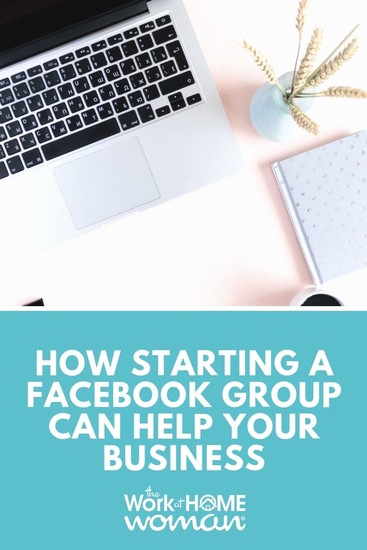I know what you’re thinking: Do I really need another marketing tool? Can starting a Facebook Group help your business?
 You’re already posting beautiful photos on Instagram and coming up with clever captions. You’re engaging with your audience as much as possible and hashtagging your little heart out.
You’re already posting beautiful photos on Instagram and coming up with clever captions. You’re engaging with your audience as much as possible and hashtagging your little heart out.
You’ve set up a Facebook Page, regularly post updates, share links to interesting articles, and throw in the occasional funny meme or quote.
You even have your head around Pinterest and can pin with your eyes closed. You drop into LinkedIn and Twitter now and then as well.
You write blog post after blog post and know enough about SEO to get decent website traffic.
Surely, you’ve covered all your bases to reach your audience?! Yes, you are doing an amazing job running your business, but there’s always room for growth.
Whether your business is product- or service-based, you could be missing out on a vital strategy to promote it. It’s not only free, but it’s also simple to set up. Because it’s yours to manage, you get to decide how much time and effort you put into it, who you accept into the group, and what the ground rules are for members.
How many people spend time in Facebook Groups? According to this Forbes article, more than half of all Facebook users are in groups. A Facebook Group provides the opportunity to return to the power of community, organic engagement, and meaningful connections on a more human level.
If you look at it this way: If a friend or family member started a business, you’d want to support them, buy their products, refer their service onto others, and spread the word as much as possible. You know them, you trust them, you’ve seen how talented or creative they are, and you know how reliable or experienced they are. Well, a Facebook Group has a similar impact on its members if managed well.
This is how starting a Facebook Group can help your business.
1. Authority
A Facebook Group enables you to establish yourself as an authority in your field. You achieve this by offering valuable content, answering members’ questions, responding to their comments, and posting helpful tips and tricks.
2. Trust
Once your group members get to know you on a more personal level, with a face to the name, you’ll build their confidence. Trust is a valued quality that customers or clients demand before deciding where they want to spend their money. It takes time to earn this trust, and it needs to feel sincere and non-salesy.
3. Efficiency
Potential and existing clients or customers can join your group to ask questions at any time. Communication is more casual and direct, which means both parties can save time by not sending emails and messages back and forth. There’s even a feature for members to search within the group using keywords. If I want to know about how many hashtags to use on Instagram, I can search in a small businesswomen group and read all of the related discussions.
4. Exclusivity
Not only will your members feel like they’re privy to exclusive information and extra resources, but you’ll also have complete access to your target audience.
5. Visibility
Regardless of what your niche is, it can feel like it’s near impossible to be heard over all the social media noise. Great news though, your posts won’t get lost in newsfeeds. Facebook group members will be notified as soon as you or any members have posted.
6. Engagement
A closed Facebook Group enables members to chat to and learn from like-minded people. When engagement is high, it helps to strengthen relationships between the business and its audience, which, in turn, helps to influence their spending decisions.
7. Research
A Facebook Group is the virtual version of inviting your target audience to your seminar, handing them a questionnaire, and asking how you can improve your business. You can easily gauge what they would like to see more of, how you can help them in some way, what their ongoing issues are, and so much more!
So, now that you know the value of setting up a Facebook Group, it’s a great idea to plan your long-term content strategy. This is usually defined by the goal of the group. Is your goal to support current customers or to sell to members? Is your group just for networking purposes or purely for market research?
Once you have your why, you can start to plan the content itself. Will it be inspirational, entertaining, or informative? You can prepare the posts in advance; there are scheduling tools for this, like Buffer. Use the group analytics to see the most popular times to post and which kinds of posts do well to inform your future content strategy. Hosting regular events like Q&A sessions with relevant experts, competitions, and live discussions helps to reinforce group relationships not just with you but among the members of your group. Getting a referral from one member to another is priceless!
Conclusion
If you’re still unsure whether starting a Facebook Group is the marketing strategy is for you, join some popular groups in your niche. You’re a work-at-home woman, so why not join some business groups and find out if others have found that starting a Facebook Group has helped their business. I might even meet you there!








Leave a Comment